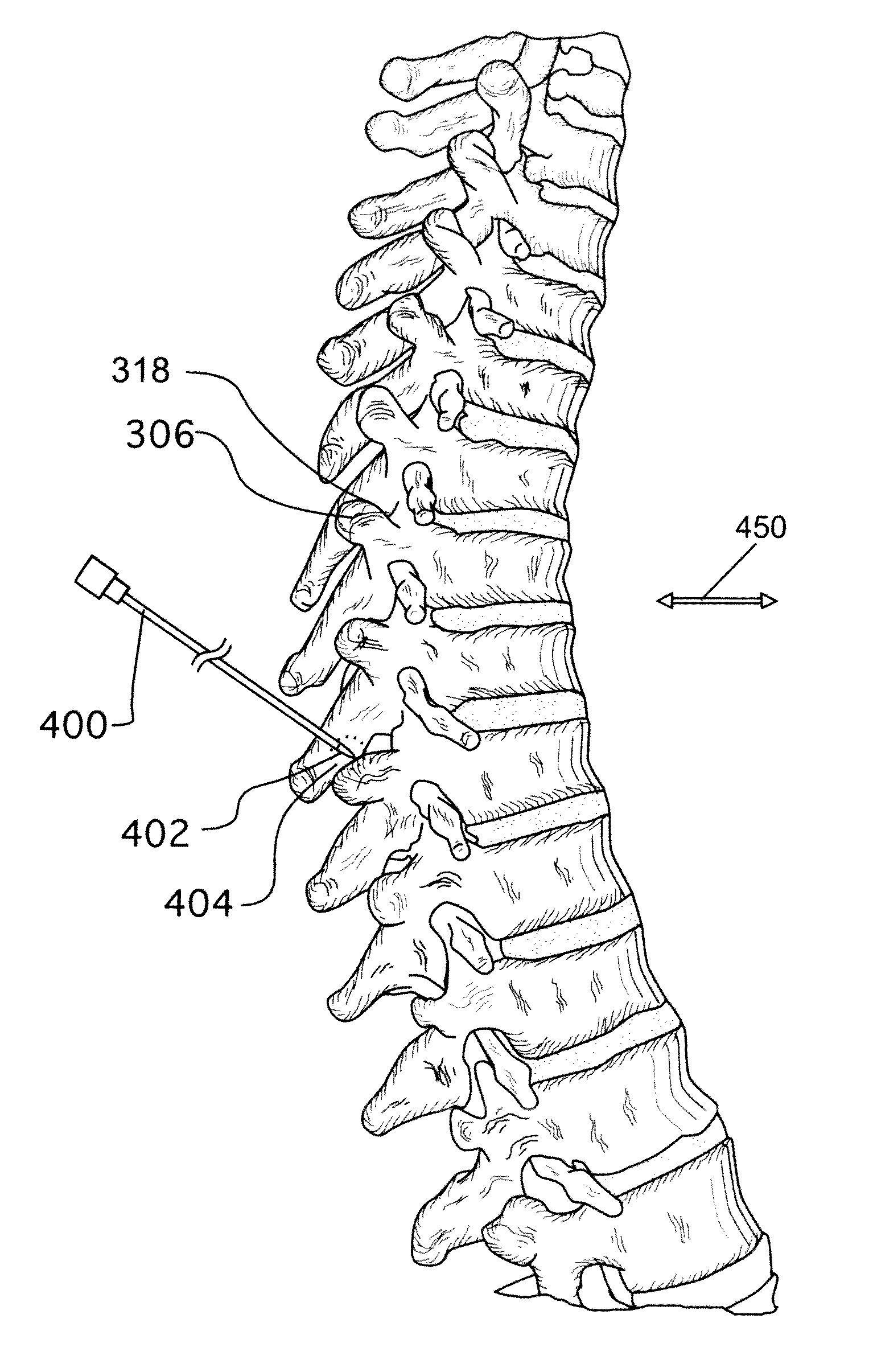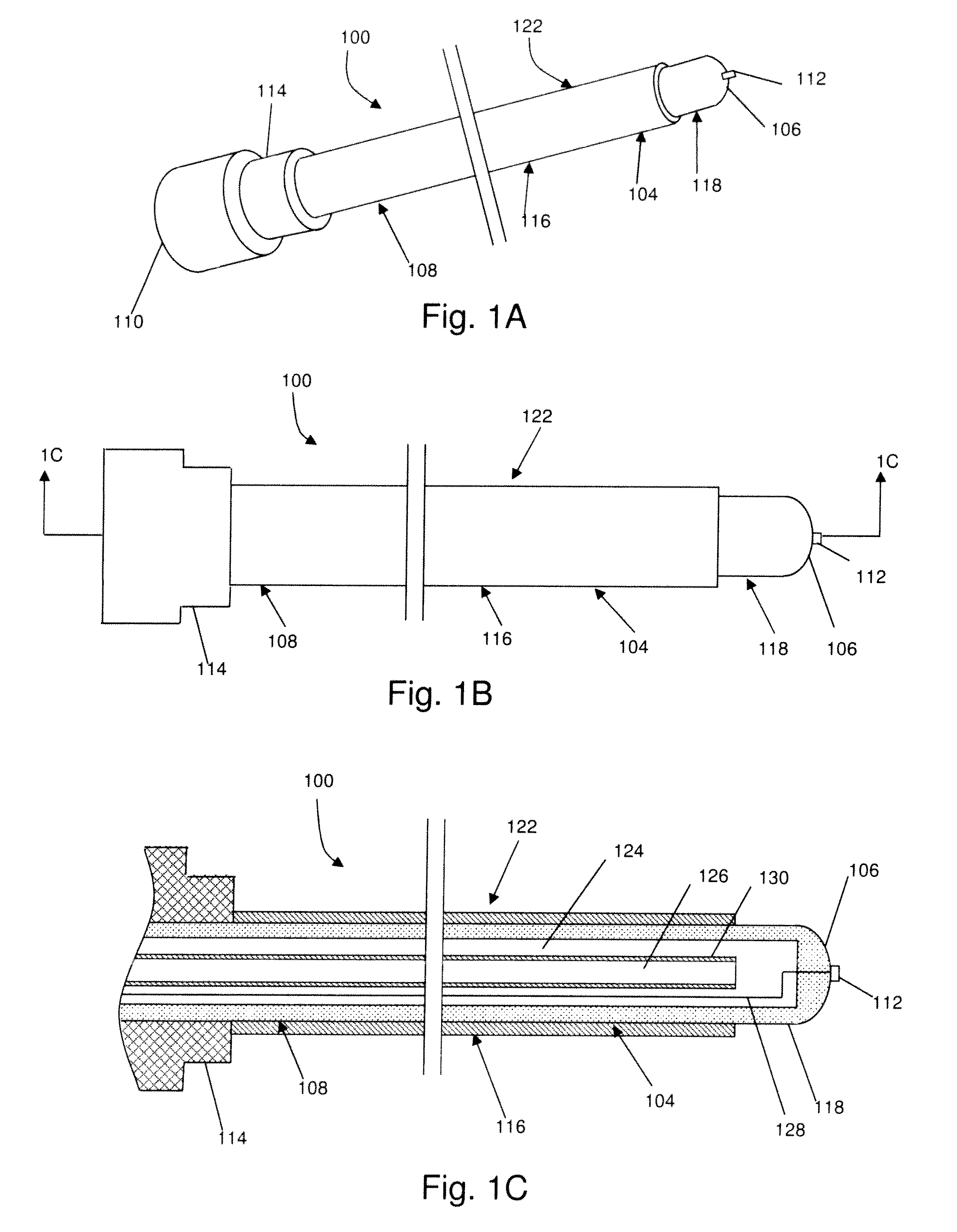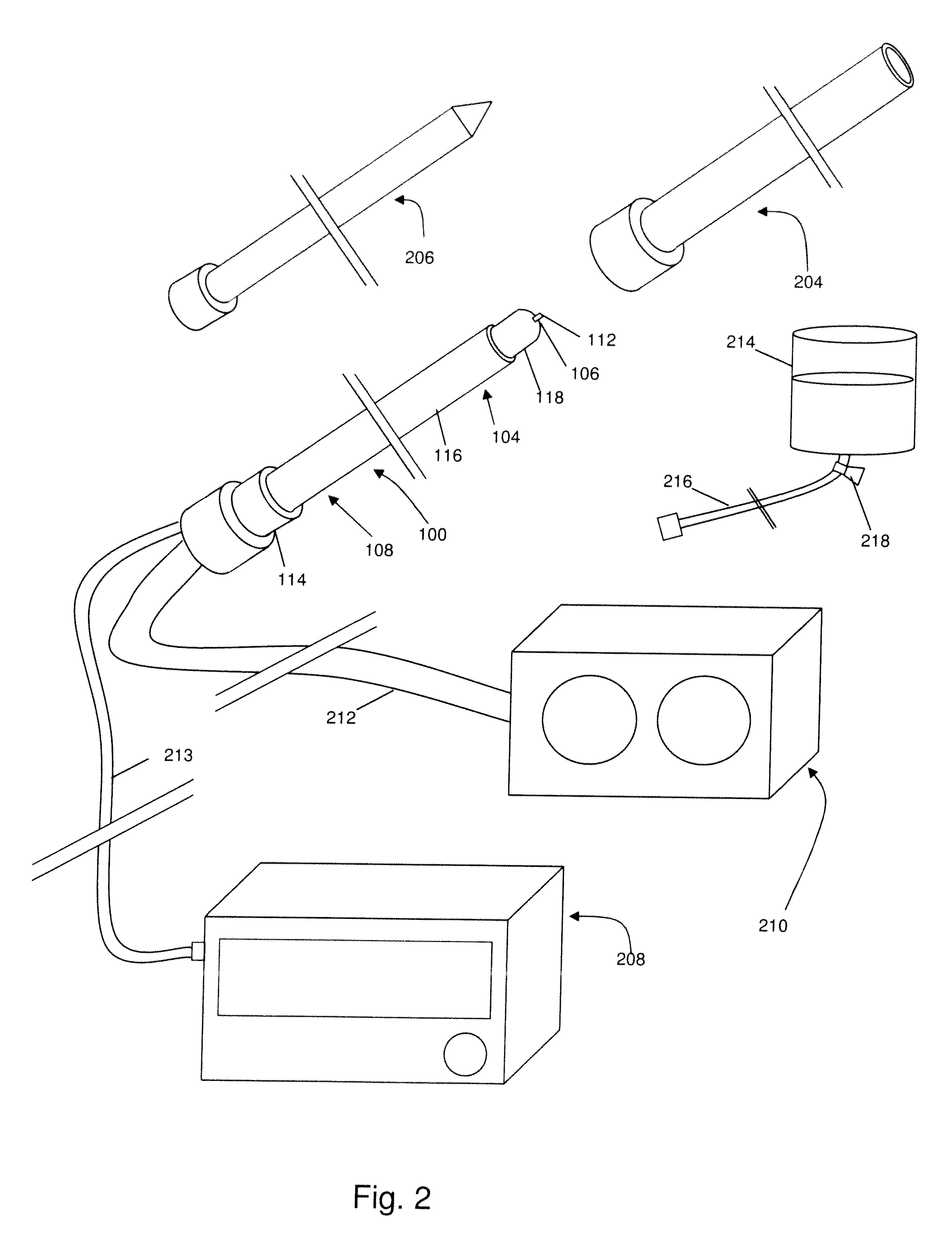Methods for treating the thoracic region of a patient's body
a thoracic region and spine technology, applied in the field of electrosurgery, can solve the problems of ineffective treatment, rf technique, and adjacent lesion to the probe tip, and achieve the effect of effective treatment, effective lesioning of the target nerve, and effective lesion
- Summary
- Abstract
- Description
- Claims
- Application Information
AI Technical Summary
Benefits of technology
Problems solved by technology
Method used
Image
Examples
Embodiment Construction
[0032]In one broad aspect, the present invention comprises a method for treating a thoracic region of a spine of a patient's body, for example in order to treat pain. Some embodiments of the method comprise positioning an energy delivery portion of an electrosurgical device to face a segment of a thoracic vertebra at a distance from the segment; and cooling the energy delivery portion and delivering energy through the energy delivery portion. As a feature of this aspect a lesion is formed at least substantially distal to the energy delivery portion. As another feature of this aspect a lesion is formed at a location at least between the energy delivery portion and the segment of the thoracic vertebra. In one feature of this aspect the energy delivery portion electrosurgical device may be inserted and positioned in a relatively safe, effective, and efficient manner. In one example, the energy delivery portion is positioned in proximity to a medial branch of a thoracic dorsal ramus ner...
PUM
 Login to View More
Login to View More Abstract
Description
Claims
Application Information
 Login to View More
Login to View More - R&D
- Intellectual Property
- Life Sciences
- Materials
- Tech Scout
- Unparalleled Data Quality
- Higher Quality Content
- 60% Fewer Hallucinations
Browse by: Latest US Patents, China's latest patents, Technical Efficacy Thesaurus, Application Domain, Technology Topic, Popular Technical Reports.
© 2025 PatSnap. All rights reserved.Legal|Privacy policy|Modern Slavery Act Transparency Statement|Sitemap|About US| Contact US: help@patsnap.com



